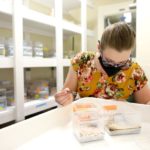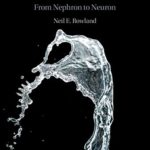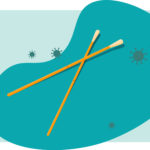Research
The UFCST has a broad research portfolio that embodies it’s University-wide, multidisciplinary nature. Major areas of research include:
The Chemical Senses and Human Health
The National Institute on Deafness and Other Communication Disorders (https://www.nidcd.nih.gov), which supports chemosensory research, says that up to 15% of the U.S. population is thought to have a problem with smell or taste function. This can be reduced smell (hyposmia) or taste (hypogeusia), a complete loss of smell (anosmia) or taste (ageusia), or various distortions of smell or taste (collectively known as dysosmias or dysgeusias). Smell or taste problems can be present from birth (congenital) or acquired. They can result from traumas like head injuries; disease, including upper respiratory infections, dental disease and neurodegenerative conditions such as Alzheimer’s disease; radiation therapy, chemotherapy or surgery; or gene mutations.
Smell and taste dysfunctions can have serious consequences for human health and quality of life. People with smell or taste deficits can have difficulty identifying dangers such as gas leaks, fires or spoiled foods. They can face challenges in social situations because it is more difficult for them to assess personal hygiene. And they often have differences in their perceptions of foods, leading to unhealthy eating habits or disinterest in engaging in the social rituals of eating with others.
UFCST scientists are actively pursuing new strategies to diagnose and treat smell and taste disorders. From creating new ways to measure chemosensory abilities in the clinic to developing novel gene-therapies for rescuing congenital anosmias, the UFCST is at the forefront of efforts to help improve the lives of those with chemosensory disorders.
Smell and Taste Behaviors
How do odors and tastes influence our interactions with the world? For example, humans and other animals use chemosensation to make choices about which foods to eat. Chemical signals can have powerful impacts on other behaviors, as well, from the stores we choose to frequent to the people with whom we choose to associate. But how smell and taste impact these behaviors remains poorly understood. Furthermore, how smell and taste interact with each other, with other senses, or with our physiological state (such as hunger) is largely a mystery. UFCST scientists are exploring the link between the chemical senses and behaviors to gain important insights into how smell and taste influence our daily lives.
Bioengineering and Chemical Sensors
The UFCST is addressing the growing demand for sophisticated chemical biosensors – or “electronic noses” – for clinical, industrial, and defense applications. Our scientists are applying biological principles of odor detection in animals to the development of more general purpose chemical biosensors. By understanding how animals detect, recognize, and locate the source of natural odors, UFCST biologists and engineers are working together to translate the biology of the nose into the development of a variety of chemical biosensors.
The Chemical Senses and the Control of Agricultural Pests and Disease Vector Insects
Insects and other agricultural pests destroy crops and cause huge economic losses. Insects can also carry diseases that affect plants, livestock and even humans. UFCST scientists in the Department of Entomology and Nematology at the UF Institute for Food and Agricultural Science and with the U.S. Department of Agriculture at UF are working to better understand insect chemosensory function with the goal of preventing pest and disease-carrying insects from causing damage in the first place.
Flavor Perception
The UFCST is helping to improve the flavor (and therefore the acceptability) of agricultural products such as tomatoes, strawberries and blueberries by working to understand how we detect and perceive flavors in foods. By partnering in these efforts with the Plant Innovation Center (PIC) and the Clinical and Translational Research Institute (CTSI) at UF, the UFCST hopes to improve nutrition and human health by fostering increased consumption of fruits and vegetables.





